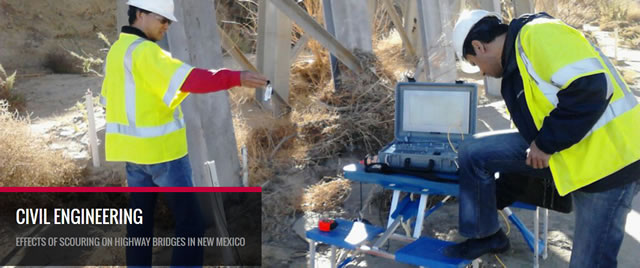
Civil Engineering ETDs
Publication Date
Spring 5-12-2024
Abstract
In enhanced geothermal systems, the efficient transfer of heat from the formation to the fluid circulating through the fracture network can be compromised when thermal short-circuiting occurs due to preferential flow through highly conductive fractures. This study introduces a pioneering approach using newly developed phenol polymer nanocomposites as an engineering solution to address the challenges associated with preferential flow in geothermal wells, which can lead to thermal short-circuiting. Multiple phenol polymer nanocomposites were formulated, incorporating aluminum oxide, COOH-functionalized graphitized multi-walled carbon nanotubes (MWCNTs), and graphene nanoparticles, each with a 0.5 wt.% polymer dosage. This research successfully modified the crosslinking process of the Resole Phenol resin to create a two-component nano-modified Resole Phenol resin by-design, and the experimental results validated the chemical deactivation/reactivation of the Resole Phenol resin. The newly designed two-component nano-modified Resole Phenol resin by-design displayed notable attributes, including high thermal stability and exceptionally low viscosity.
Keywords
geothermal energy harvesting, thermal short-circuiting, phenol polymer nanocomposites, rheological behavior, thermal stability, tensile bond strength, gel time, shrinkage, wettability.
Sponsors
U.S. Department of Energy, Office of Energy Efficiency and Renewable Energy (EERE) under the Geothermal Technologies Office, Award Number DE-EE0009787
Document Type
Thesis
Language
English
Degree Name
Civil Engineering
Level of Degree
Masters
Department Name
Civil Engineering
First Committee Member (Chair)
Dr. Susan Bogus Halter
Second Committee Member
Dr. Allyson McGaughey
Third Committee Member
Dr. Madura Pathirage
Recommended Citation
Hamidi, Fatemeh. "Insight into the Application of Engineered Phenol Polymer Nanocomposites for Geothermal Well Applications to Modify Fracture Permeability." (2024). https://digitalrepository.unm.edu/ce_etds/324


